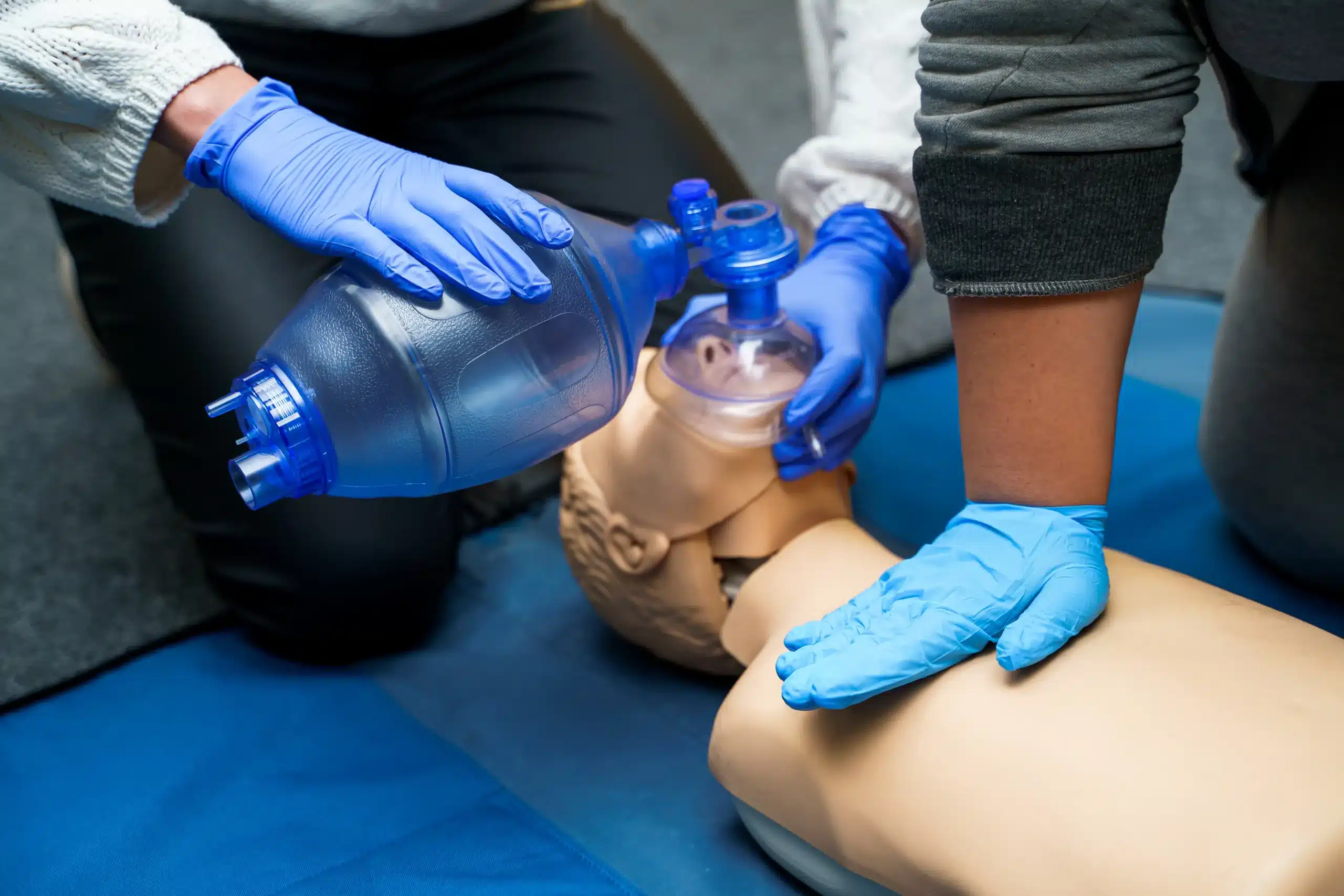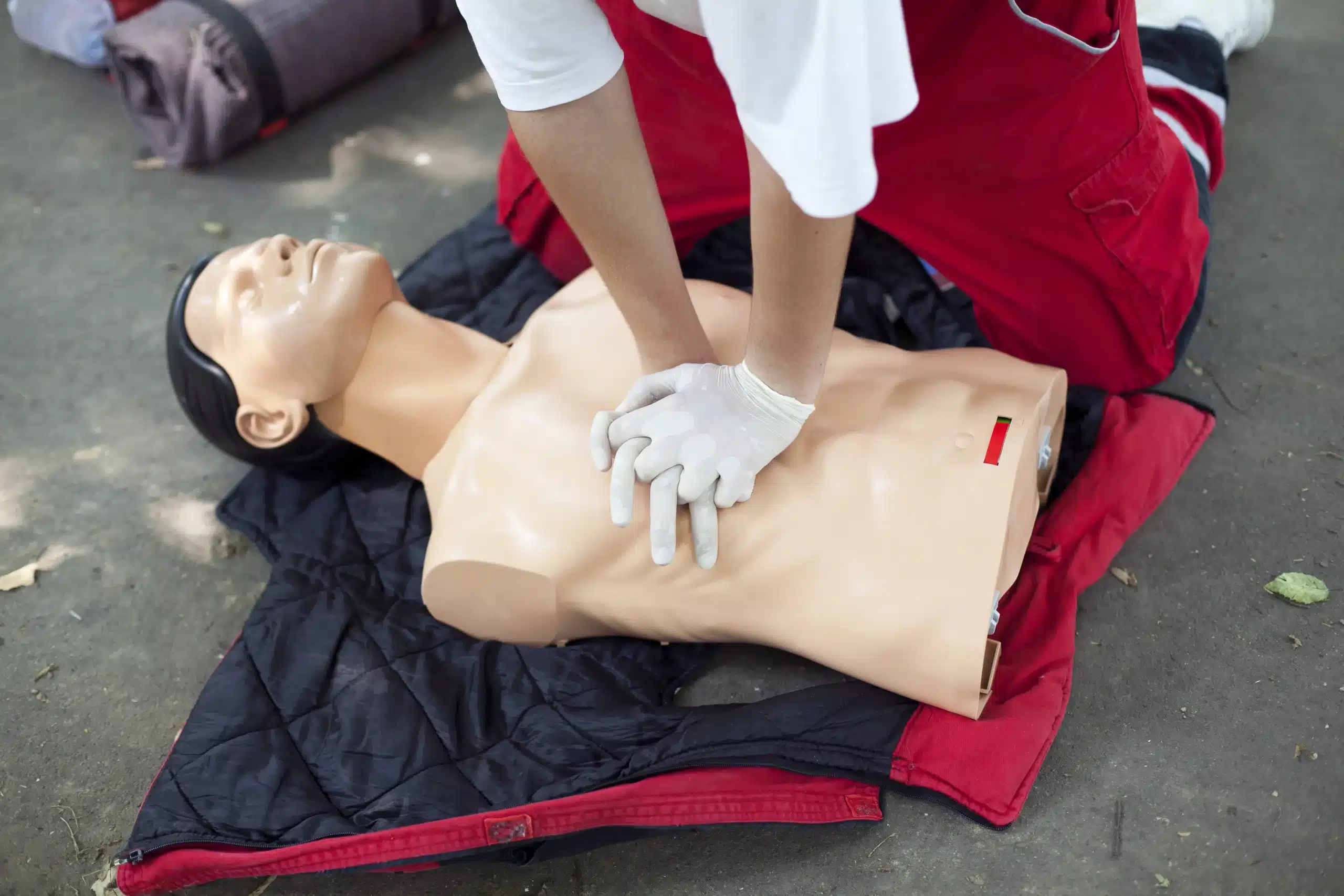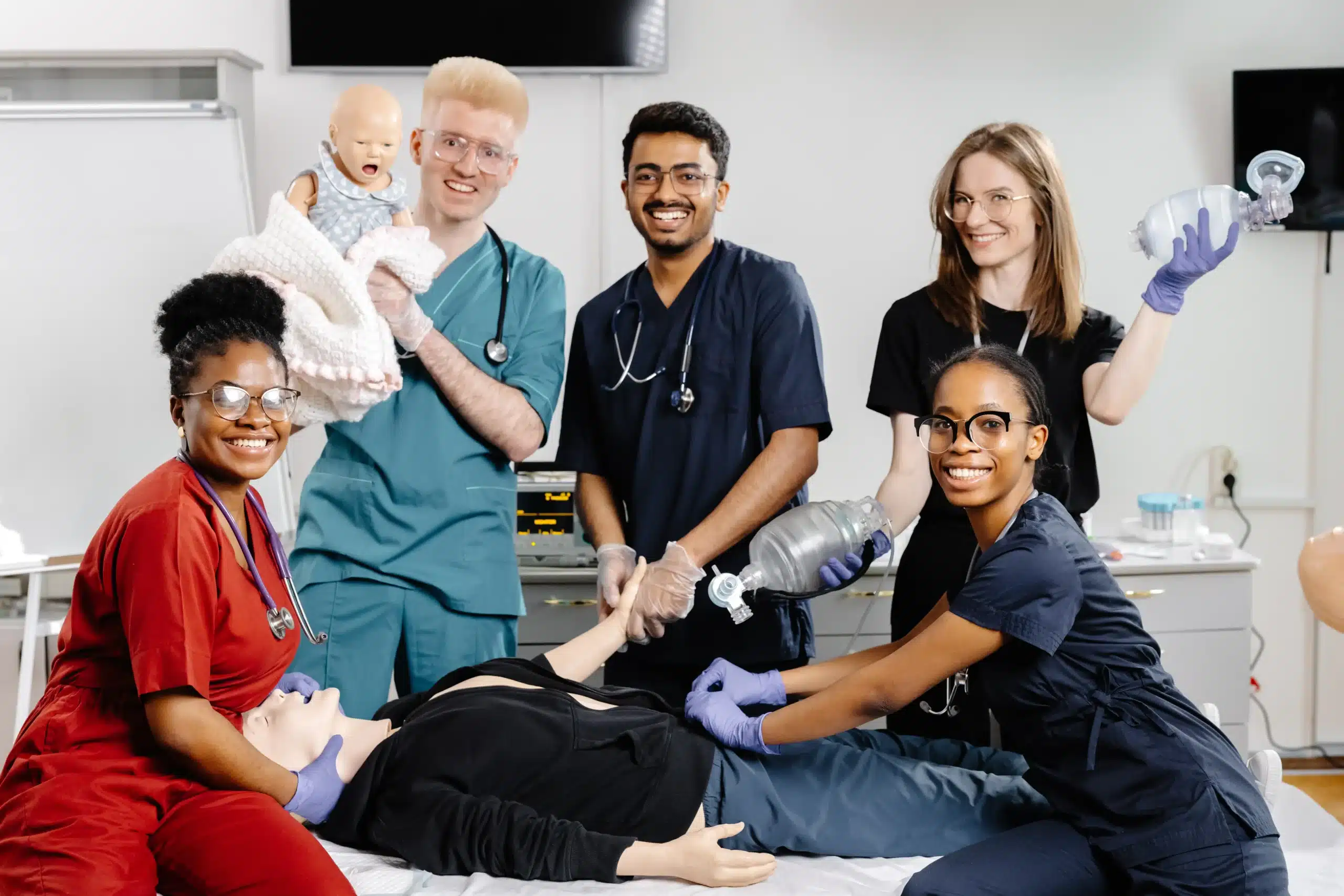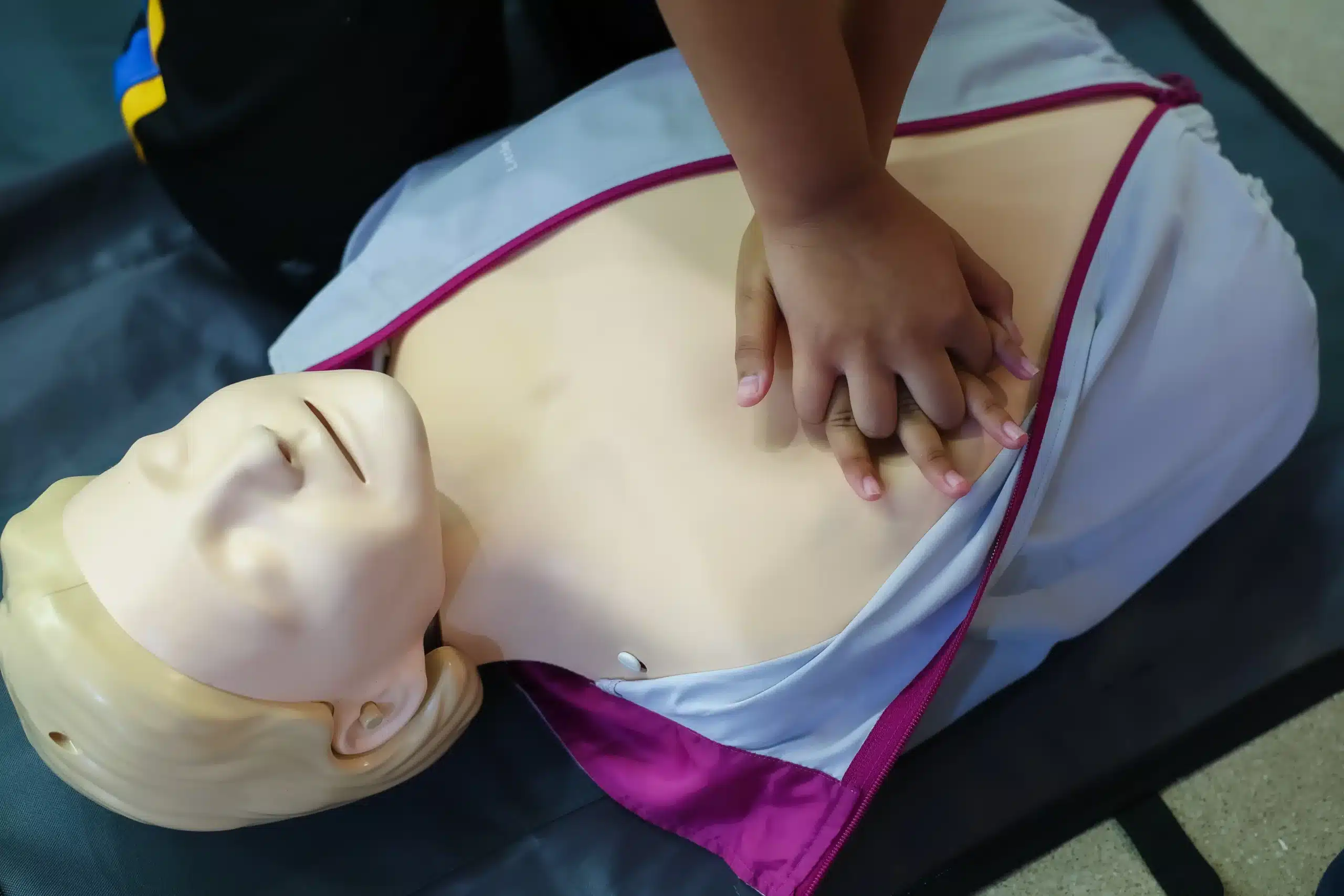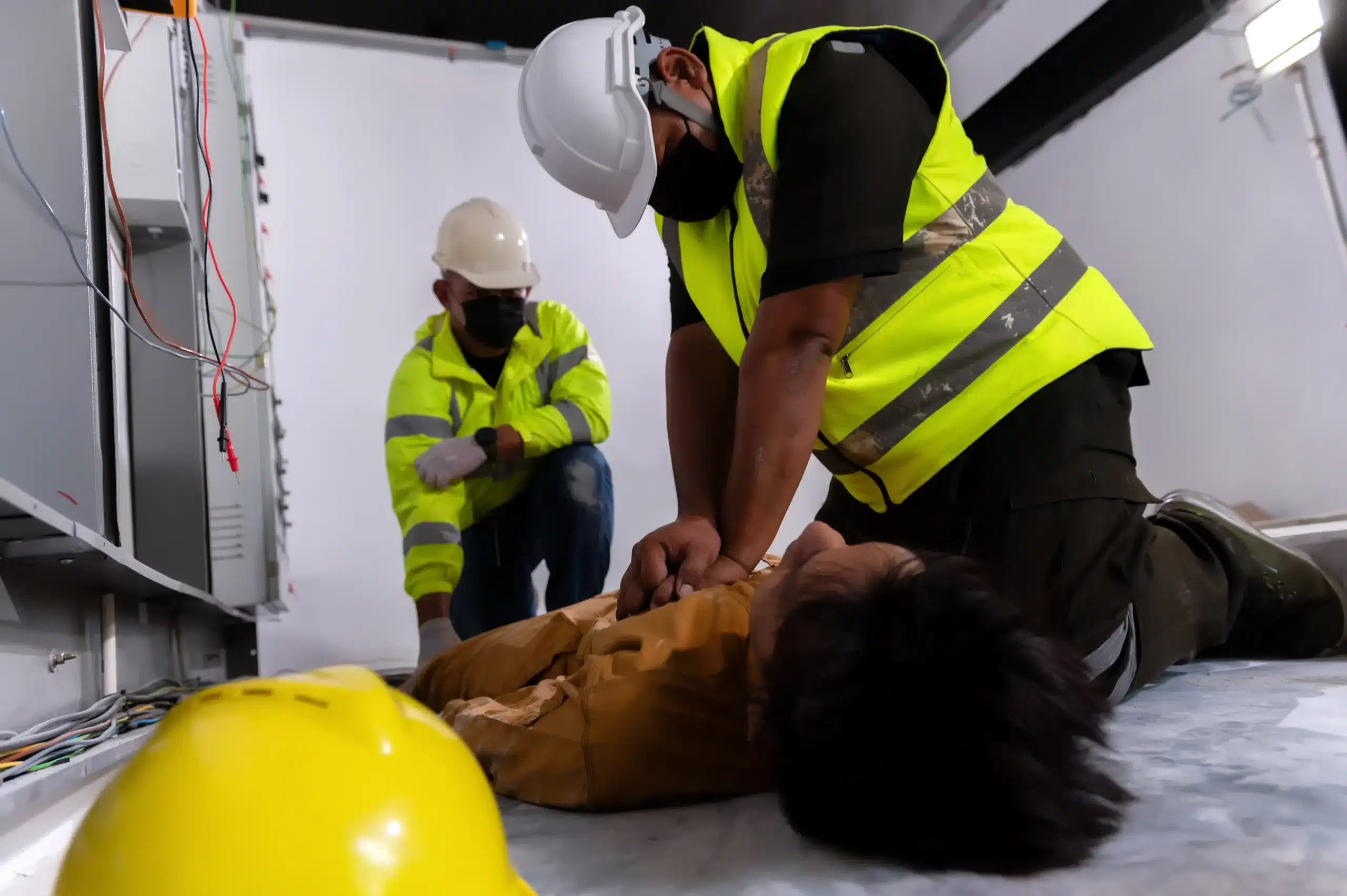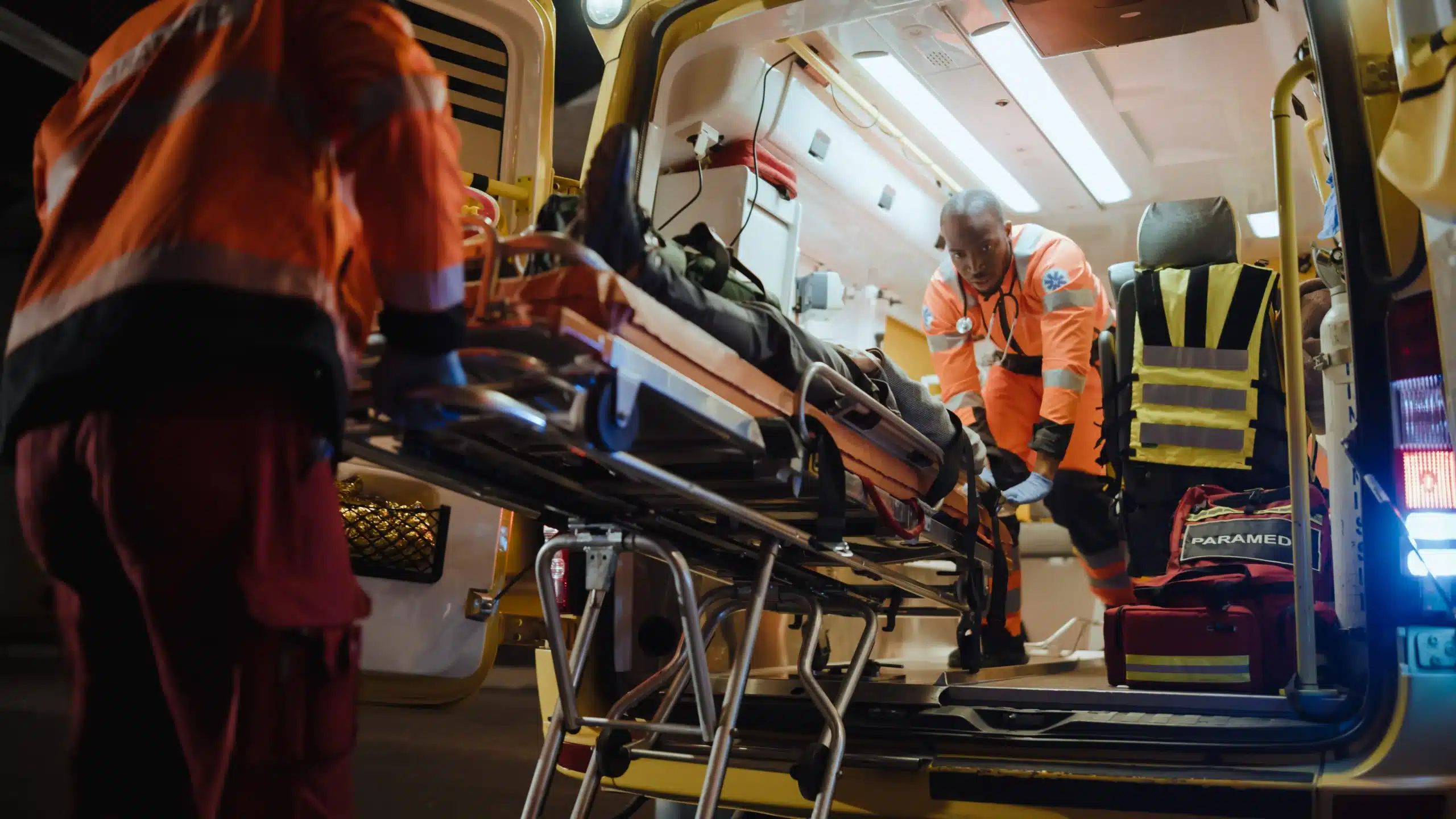Medical emergencies can happen anytime, anywhere. Being equipped with Basic Life Support (BLS) skills can empower you to act quickly and potentially save a life. This comprehensive guide will walk you through the essentials of BLS, from understanding its core principles to finding the perfect bls courses in Tulare. We’ll explore different course formats, discuss certification requirements, and highlight the career benefits of BLS training. Whether you’re a healthcare professional, a concerned parent, or simply someone who wants to make a difference, this guide will provide you with the information you need to get started.
Key Takeaways
- BLS certification provides essential life-saving skills: Equipping you with the ability to perform CPR, use an AED, and relieve choking, BLS training empowers you to confidently respond to medical emergencies and potentially save lives.
- Choosing the right BLS course involves several key considerations: Think about your preferred learning style (in-person, online, or blended), the provider’s reputation, the total cost, and what’s included in the course to find the best fit for your needs and schedule.
- Maintaining your BLS skills is an ongoing process: Regular practice and refresher courses are vital for keeping your skills current and ensuring you’re prepared to act quickly and effectively in a real emergency.
What is BLS?
Basic Life Support (BLS) is crucial for healthcare providers and anyone who might respond to medical emergencies. It focuses on providing immediate care in life-threatening situations, like cardiac arrest or respiratory failure, emphasizing the ABCs: Airway, Breathing, and Circulation. Think of BLS as the foundation for saving lives. BLS training equips people with the skills to assess a patient’s condition quickly and perform essential interventions like CPR, using an AED, and relieving choking. These skills are critical in those first few minutes before more advanced help arrives. This training empowers individuals to make a real difference and potentially save a life.
What are BLS Courses and Why are They Important?
BLS courses teach practical skills needed to respond effectively to medical emergencies. They cover essential techniques like high-quality CPR, using an AED, and helping someone who is choking. BLS training prepares healthcare professionals to act quickly and confidently in critical situations. It goes beyond just learning the steps; it’s about developing the muscle memory and confidence to perform them under pressure. The importance of CPR Visalia.
Who Needs BLS Certification?
BLS certification is often a requirement for many healthcare jobs, both in and out of hospitals. It’s essential for anyone who might need to perform CPR or other basic life support techniques. This includes doctors, nurses, paramedics, dentists, and other healthcare professionals. But it’s not just for medical professionals. Many other professions, including teachers, coaches, lifeguards, and childcare providers, benefit from BLS certification. Even if it’s not required for your job, having it can provide peace of mind, knowing you have the skills to help in an emergency. If you’re considering a healthcare career, BLS certification is a valuable asset, demonstrating your commitment to patient safety and your ability to handle critical situations. Check with your employer or professional organization to see if it’s required or recommended for your field. CPR Visalia offers various BLS courses to meet your needs.
Where to Find BLS Courses in Tulare
Finding the right BLS course provider is an important first step towards your certification. Here are a few options to explore in and around Tulare:
Safety Training Seminars
Safety Training Seminars, located in Visalia, offers official American Heart Association courses, including BLS, ACLS, PALS, NRP, EMSA, and First Aid. They focus on providing excellent customer service and affordable pricing, making them a popular choice for both healthcare professionals and the general public. Serving Visalia, Tulare, and Delano, they offer convenient access to high-quality training. Learn more about their course schedule and low price guarantee.
TulareCPR
TulareCPR provides American Heart Association (AHA) certifications and recertifications in CPR, BLS, ACLS, and PALS, along with First Aid and Bleeding Control training. Serving Tulare and the surrounding Central California area, they offer accessible training options for local residents. Visit their website for more details.
College of the Sequoias
The College of the Sequoias offers Basic Life Support (BLS) CPR classes leading to American Heart Association certification. These courses are particularly valuable for those pursuing healthcare careers, providing essential skills for emergency response.
Tulare CPR Classes
Tulare CPR Classes focuses on American Heart Association (AHA) certified CPR, ACLS, PALS, and BLS training. They tailor their courses specifically for medical and healthcare professionals, preparing participants for real-world medical emergencies. Explore their course offerings.
American Red Cross
The American Red Cross is a well-known provider of BLS certification courses. Their training programs are recognized nationally and teach the crucial skills needed for responding to emergencies. They offer various courses and certifications, so you can find the best fit for your needs.
Choose Your BLS Course Format
Deciding on the right BLS course format depends on your learning style and schedule. Let’s explore the options to help you make the best choice for your needs.
In-Person Training: Hands-On Learning
In-person BLS training offers a structured environment with direct interaction with an instructor. This format emphasizes hands-on practice and real-time feedback, crucial for mastering essential skills like CPR and AED use. You’ll have the opportunity to ask questions and practice techniques under the guidance of a certified professional. Tulare CPR emphasizes the importance of in-person skills evaluations, ensuring participants can confidently apply their knowledge. This format also guarantees adherence to the latest American Heart Association guidelines. If you thrive in a traditional classroom setting and value hands-on learning, in-person training might be your best fit.
Online Courses: Flexibility at Your Fingertips
Online BLS courses provide flexibility for busy individuals. You can learn at your own pace, revisiting modules as needed, and fitting the training around your schedule. The American Red Cross offers interactive online modules, making learning engaging and accessible. Some providers, like American BLS, even offer free online BLS courses, a cost-effective option. Keep in mind that online courses typically require an in-person skills evaluation for certification.
Blended Learning: The Best of Both Worlds
Blended learning combines online convenience with hands-on training. You’ll complete the theoretical portion online at your own pace, then attend an in-person session to practice skills and complete the required evaluation. The American Red Cross offers blended learning BLS programs, allowing you to learn independently before demonstrating your skills with an instructor. Providers like Tulare CPR also offer this blended format. This balanced approach makes it a popular choice.
BLS Course Costs in Tulare
Typical Price Ranges
BLS course fees in Tulare generally hover around $80, a common rate for providers offering Basic Life Support certification. This price typically covers your training materials and the certification process. For the best value, Safety Training Seminars offers a Low Price Guarantee on their BLS courses, ensuring competitive pricing.
Factors Affecting Course Prices
Several factors can influence BLS course costs. The type of certification (college credit or not) plays a role, as does the provider’s reputation and the inclusion of any extra materials. For example, College of the Sequoias offers CPR classes with varying prices depending on whether you need college credit. Choose the course type that aligns with your goals. A non-credit course is often more affordable if you don’t need it for college credit.
Compare Provider Costs
Before committing to a BLS course, compare prices from different providers in Tulare. Transparency is essential. Providers like Tulare CPR Classes clearly display their pricing for various certifications, including CPR, ACLS, PALS, and BLS, often using the American Heart Association curriculum. This upfront approach simplifies finding a course that meets your budget and certification needs. Reviewing the course schedule at Safety Training Seminars is another excellent way to compare options and pricing.
BLS Certification: Details and Requirements
What Does BLS Certification Cover?
BLS certification equips you with the skills to respond to cardiac arrest and other life-threatening emergencies. It goes beyond basic CPR to include high-quality chest compressions, delivering rescue breaths, and using an AED. BLS also covers the chain of survival, emphasizing early recognition and response to emergencies. This includes recognizing the signs of a heart attack, stroke, and choking. You’ll learn how to work effectively as part of a team and communicate clearly during critical situations. BLS training emphasizes following specific algorithms for different emergencies, ensuring consistent and effective care. For more details on the benefits of BLS training, check out this helpful article.
Prerequisites for Enrollment
Generally, there aren’t strict prerequisites for enrolling in a BLS course. The training is designed for a wide range of people, from healthcare professionals like doctors and nurses to those in other fields requiring CPR knowledge, such as teachers, coaches, and childcare providers. The American Heart Association website offers more information on who can benefit from BLS training. Even if you don’t work in healthcare, having BLS skills can be invaluable, empowering you to assist family, friends, or even strangers during a medical crisis.
Certification Validity and Renewal
Your BLS Provider card, earned after completing the course, is typically valid for two years. To maintain your certification and stay up-to-date with the latest guidelines, you’ll need to take a renewal course before your current certification expires. This ensures your skills remain sharp and you can continue to provide effective care in emergencies. Regular renewal also demonstrates your commitment to maintaining a high standard of care.
How to Enroll in a BLS Course
Getting BLS certified is easier than you think. These three steps will guide you through the enrollment process:
Select a Course Provider
First, find a training center that fits your needs. For AHA-authorized training in Tulare County, consider Safety Training Seminars, offering various courses including BLS, ACLS, and PALS. They focus on excellent customer service and competitive prices. For additional local options, explore providers like TulareCPR. If you’re interested in academic credit, check with institutions like the College of the Sequoias, which also provides AHA-certified BLS training.
Register for a Course
Once you’ve chosen a provider, register for their BLS course. Contact them directly—for example, you can reach Safety Training Seminars through their contact page—to learn about course schedules, costs, and any prerequisites. Pay close attention to registration deadlines and instructions. If you’re considering a college or university program, clarify whether the course offers credit toward a degree or certificate.
Prepare for Your BLS Course
After registering, prepare for your course. Review any pre-course materials or resources your provider offers. Familiarizing yourself with basic concepts beforehand will make your in-class learning more effective. While not the provider featured here, the American Red Cross offers examples of the kind of online materials that can help you understand what to expect. Understanding core concepts like CPR, AED use, and choking relief will give you a head start. Articles like this one on the benefits of BLS training can also provide helpful context.
Make the Most of Your BLS Certification
Getting your BLS certification is a significant achievement, but it’s more than just a checkbox. It’s a powerful tool that can open doors and empower you, both personally and professionally. Whether you’re a seasoned healthcare provider or just starting out,
Career Advancement Opportunities
In the competitive healthcare field, BLS certification is often a minimum requirement. This credential shows your commitment to patient safety and high-quality care, giving you an advantage when applying for jobs like certified nursing assistant, medical assistant, or emergency medical technician. As Integrity Health Education notes, BLS training can expand career advancement opportunities. Even if it’s not a listed requirement, having BLS certification can make you a more attractive candidate, potentially leading to higher-paying roles and greater responsibilities. It signals to employers your dedication to professional development and that you possess essential life-saving skills.
Enhance Healthcare Team Collaboration
BLS training isn’t just about individual skills; it’s about teamwork. You’ll learn to communicate clearly and coordinate your actions with others in high-pressure situations. This teamwork emphasis, as ACLS & BLS Louisville highlights, is crucial for providing excellent patient care. Whether performing CPR or responding to another medical emergency, working seamlessly with colleagues can significantly improve outcomes, creating a more efficient and effective healthcare environment.
Build Confidence in Emergency Situations
Imagine facing a medical emergency. Would you feel prepared to act quickly and decisively? BLS certification equips you with the knowledge and skills to handle these situations confidently. Kaiser CPR discusses how BLS training prepares healthcare professionals to act confidently in emergencies. Knowing you can provide immediate and effective care makes a difference, not just for the person needing help, but for your own peace of mind. This confidence empowers you to take charge, provide support, and potentially save a life, reducing hesitation in time-sensitive emergencies. This confidence also extends beyond the workplace, enabling you to respond effectively to emergencies anywhere.
Find the Right BLS Course
Choosing the right BLS course is a personal decision. Think about your learning style, schedule, and career goals as you explore your options. Here’s a breakdown of key factors to consider:
Assess Your Learning Style and Schedule
Everyone learns differently. Some people thrive in a traditional classroom, while others prefer the flexibility of online learning. Luckily, BLS courses cater to both preferences. If you enjoy hands-on learning and interacting with an instructor and fellow students, an in-person BLS course might be a good fit. If your schedule is packed or you prefer learning at your own pace, an online course like HeartCode Complete could be a better option. Many providers offer blended learning, combining online coursework with in-person skills practice. This approach gives you the best of both worlds. Consider what works best for you and choose a format that will set you up for success.
Evaluate Course Features and Provider Reputation
Not all BLS courses are created equal. Look for a course that aligns with the latest American Heart Association guidelines and offers high-quality instruction. Check out the provider’s reputation. Are they known for experienced instructors, comprehensive materials, and a supportive learning environment? Reading reviews and testimonials can give you valuable insights from past students. A provider like Safety Training Seminars prioritizes customer service and quality instruction.
Consider Regulatory Compliance
Depending on your profession, certain regulatory requirements may dictate the type of BLS certification you need. Make sure the course you choose meets these requirements. For healthcare professionals, adhering to these standards is crucial for maintaining licensure and ensuring patient safety. BLS training not only equips you with life-saving skills, but also demonstrates your commitment to professional development and compliance. This blog post highlights the importance of BLS training for healthcare professionals, including meeting regulatory requirements. If you’re unsure about the specific requirements for your field, reach out to your licensing board or employer for clarification.
Keep Your BLS Skills Sharp
Knowing BLS is like having a superpower—the power to save a life. But just like any superpower, your BLS skills need regular practice to stay sharp. Let’s explore why staying on top of your training is so important.
Why Practice Regularly?
Think of BLS as a muscle: the more you use it, the stronger it gets. Regular practice helps you build muscle memory, so you can respond quickly and efficiently in a real emergency. Studies show that practicing with peers, even after initial training, significantly improves both performance and skill retention. Consider setting up regular practice sessions with friends or coworkers to keep your skills honed.
Refresher Courses and Skill Updates
Even with regular practice, it’s essential to take refresher BLS courses periodically. Research indicates that BLS skills can start to fade as early as three to six months after training. Refresher courses not only reinforce what you’ve already learned but also introduce you to any updated guidelines or techniques. Think of it as a tune-up for your life-saving skills. These courses often incorporate testing, which has been shown to further improve long-term retention. Check with your employer or local training centers like Safety Training Seminars for available refresher courses. Our low price guarantee ensures you’re getting the best value for your training.
Stay Current with BLS Guidelines
Staying up-to-date with the latest BLS guidelines isn’t just a good idea—it’s crucial for providing the best possible care. Guidelines evolve as medical knowledge advances, so staying current ensures you’re using the most effective techniques. This commitment to ongoing learning also demonstrates your dedication to providing high-quality care, which can open doors to career advancement. Plus, knowing you’re using the most current methods boosts your confidence, allowing you to act decisively in critical situations. You can find the latest BLS guidelines and information on the American Heart Association BLS page of our website. Contact us if you have any questions.
Related Articles
- BLS Certification in Walnut Creek: Your Guide – Visalia CPR Classes
- BLS Certification in Concord: The Complete Guide – Visalia CPR Classes
- BLS Certification in Pleasant Hill: Your Guide – Visalia CPR Classes
- BLS Certification in Tulare County: Your Complete Guide – Visalia CPR Classes
- BLS Renewal in Tulare: Your Guide – Visalia CPR Classes
Frequently Asked Questions
What’s the difference between BLS and CPR?
CPR (Cardiopulmonary Resuscitation) is actually part of BLS (Basic Life Support). BLS is a broader term encompassing CPR along with other essential techniques like using an AED and relieving choking. Think of CPR as one important tool within the BLS toolkit.
How often do I need to renew my BLS certification?
BLS certification is typically valid for two years. To stay certified and up-to-date on the latest guidelines, you’ll need to take a recertification course before your current card expires.
What if my BLS certification expires?
If your BLS certification expires, you’ll need to take a full recertification course, not just a refresher. It’s always best to renew before your certification lapses to avoid any gaps in your credentials.
Is online BLS training enough to get certified?
While online BLS courses offer flexibility for learning the material, they typically require an in-person skills evaluation to receive full certification. This hands-on component ensures you can perform the techniques correctly.
How do I choose the right BLS provider?
Finding the right BLS provider depends on your learning style, schedule, and budget. Look for providers offering American Heart Association-authorized courses, check their reputation and reviews, and compare pricing to find the best fit for you. Consider factors like class size, instructor experience, and the availability of refresher courses.
